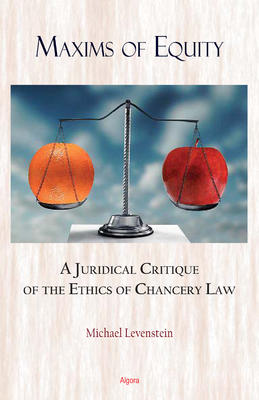
Sound Bite
Equity is a world unto itself. Originally conceived and administered by the ancient Court of Chancery in England, this arcane body of rules and principles has matured into a distinct branch of modern jurisprudence, influencing almost every field of private law from contract and tort to company and real property. Specifically, equity seeks to fashion practical justice by alleviating the inflexibility of the common law when liable to produce unfair outcomes in addition to providing a more robust set of remedies, such as injunctions or specific performance, to aggrieved claimants.
About the Author
Michael Levenstein is a philosopher specializing in utilitarian ethics and moral objectivism. He is a graduate of the Universities of Pennsylvania and Oxford, with degrees in Political Science and Public Policy, respectively, and is currently reading Law at Trinity College, Cambridge. Levenstein is the author of eleven books and multiple scholarly articles which, in addition to works of philosophy, include modernist poetry and a novel. For his work, Levenstein was elected one of the youngest-ever Fellows of the Royal Society of Arts in London. He has published two volumes with Algora.
|
|
About the Book
This monograph on British Equity law (wills, probate, trust funds and land law), discusses the philosophical underpinnings of the 'Maxims of Equity' - twenty or so guiding principles which attempt to ameliorate the rigor of the common law and to...
This monograph on British Equity law (wills, probate, trust funds and land law), discusses the philosophical underpinnings of the 'Maxims of Equity' - twenty or so guiding principles which attempt to ameliorate the rigor of the common law and to discuss these principles in light of both jurisprudential philosophy and actual case law.
Chancery law is governed by a set of principles referred to as Maxims of Equity, nearly twenty moral guidelines aimed at providing jurists a wide scope in overriding the rigors of private agreements and facilitating complex financial and proprietary transactions such as the creation and management of trusts of land. Recognizing these maxims as key insights not only into our own legal order but into the moral values that society at large prioritizes requires both philosophical dissection and the practical assessment of their efficacy.
Such scrutiny ultimately permits a keen understanding of the nexus between ethics and law, their inevitable divergences and which areas of the latter are most in need of reform. This analysis must begin with the controversial exploration of jurisprudential values themselves, before culminating with their translation within the legal order proper.
This study will surely prove fascinating for all those interested in the history of equity as the spirited conscience of law and the evolution of some of the most fundamental moral norms which underpin our modern legal system.
|
|
Pages 148
Year: 2014
BISAC: LAW000000
BISAC: LAW090000
Soft Cover
ISBN: 978-1-62894-051-0
Price: USD 19.95
Hard Cover
ISBN: 978-1-62894-052-7
Price: USD 29.95
eBook
ISBN: 978-1-62894-053-4
Price: USD 19.95
|













